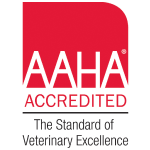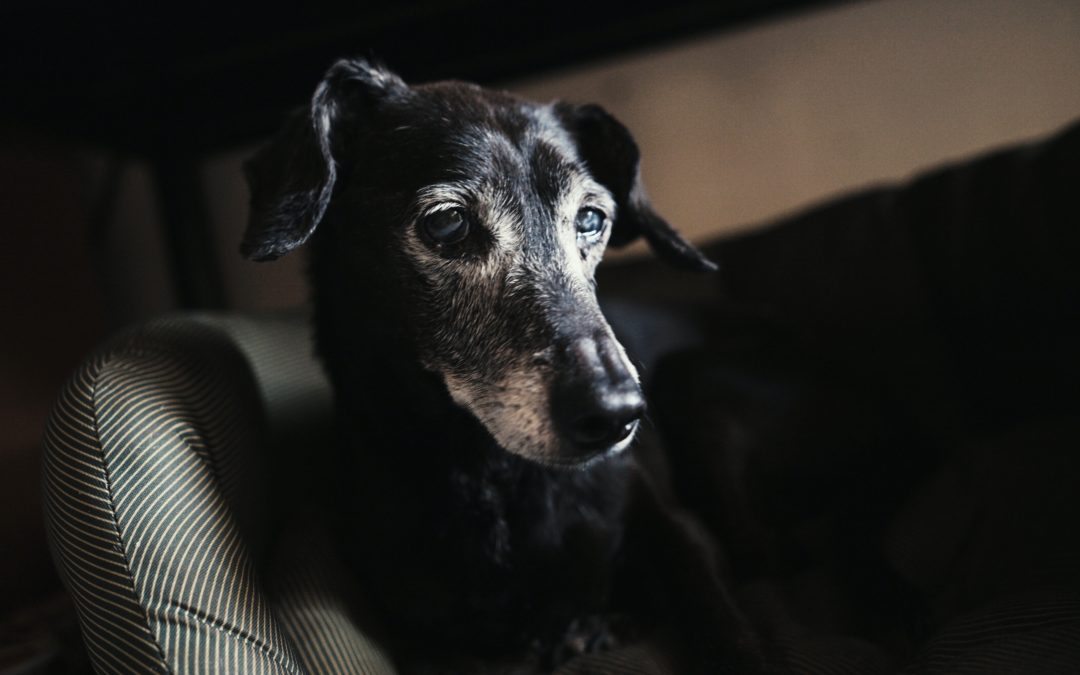Are you the proud owner of a senior pet? If so, this article is for you and them. As your pet ages, they tend to slow down a bit. Their general needs also change, but deep inside your pet still has that same big heart you feel in love with. So, how can you protect your pet’s precious heart and the rest of their health? It’s all about proactive preventative care tailored to an older pet’s pace and changing body. To help you provide for your senior pet’s needs, here are the most impactful habits you can incorporate into their life.
1. Increase Veterinary Visits
After puppyhood and kittenhood, you likely transitioned to visit us once per year. And we love seeing your pet’s fuzzy face each time they come in. However, once your pet graduates to their senior years, they need veterinary checkups twice as often.
We recommend senior dogs and cats come in twice per year. How do older pets benefit from more frequent vet visits?
Early detection of disease is vital. Older pets are often more vulnerable to succumbing to illness. Early diagnosis allows us to treat your pet more promptly for a better prognosis. Running tests can help us catch issues before they worsen. We can also respond to your pet’s changing needs to improve their quality of life.
2. Provide Age-Appropriate Exercise
Few older pets are able to maintain the same activity levels as their younger years. It’s very important to keep your dog or cat active. Once a pet becomes older, it is often the case of “use it or lose it” when it comes to muscle tone, flexibility, and mobility.
Physical and mental engagement keeps your pet’s mind, muscles, and joints strong. Of course, your dog won’t be running any marathons any time soon, and your cat is likely happier rolling on the floor rather than leaping into a tree. So, what activities are best for your senior best friend?
For Senior Dogs
- Maintain daily walks during milder times of day
- Swimming is gentle on joints and fun
- Work on agility and training
For Senior Cats
- Increase toys and store them within your cat’s reach
- Install ramps to increase mental enrichment and mobility
- Set aside 15-30 minutes daily for interactive play sessions with your cat
- Use catnip to encourage your cat to get in touch with their inner kitten
3. Adjust Your Pet’s Diet
Just like us, your pet’s metabolism slows down. Their dietary needs also change. Pets need a diet with fewer calories and ingredients that will support their mind, joints, and digestion.
One question we often get is, “How do I know when to transition my pet to a senior diet?” This can be tricky since all pets age at different rates. To determine if your pet is ready for a senior recipe, look for signs that your pet’s not getting what they need out of their current diet. Here are some signs that your pet’s current diet isn’t cutting it:
- Your pet has been packing on pounds
- Your dog or cat is responding slower, physically and mentally
- Their coat is dull. They may also have flay skin
4. Don’t Skip Dental Care
One of the most overlooked needs of all pets, including older pets, is dental care. Gum disease has been linked with shortened lifespans, increased chronic pain, and organ disease. Dogs and cats need annual cleanings. Senior pets may need cleanings twice annually. A healthy mouth is a sign of a healthy pet, so schedule your pet’s cleaning sooner rather than later.
5. Shower Your Pet with TLC
One of the easiest ways to improve your senior pet’s quality of life is to spend quality time with them. Simply actions like petting your cat or dog, playing with them, and snuggling triggers the brain to release positive endorphins.
Talking to your pet and grooming them also keep them emotionally happy.
Give Your Senior Pet the Best Years of Their Life
When it comes to your pet’s golden years, you want to provide them with comfort, love, and attention. If you have questions regarding your pet’s health, we’re here for you. We can answer questions and assist with common problems senior pets face such as incontinence, lumps and bumps, and diminished vision or hearing.
Contact us today at 952-884-1868 to schedule an appointment for your senior pet.
Image credit: Pexels



